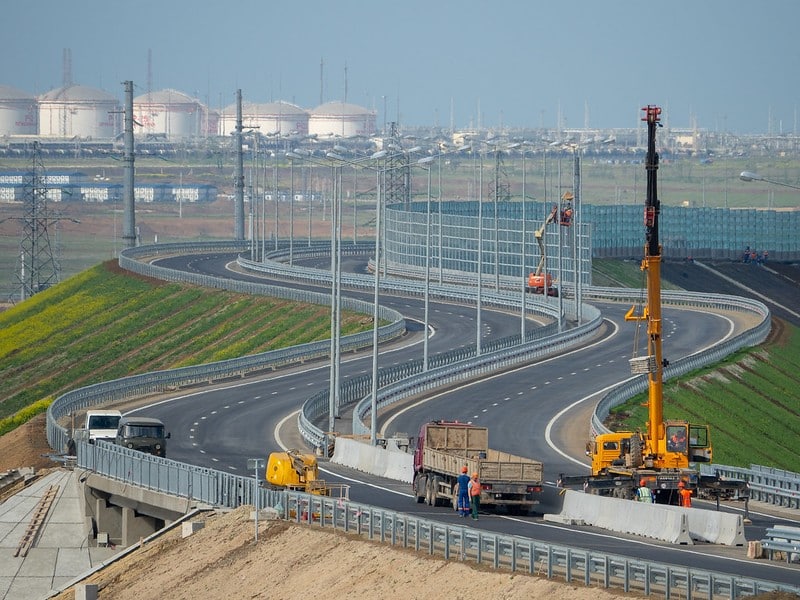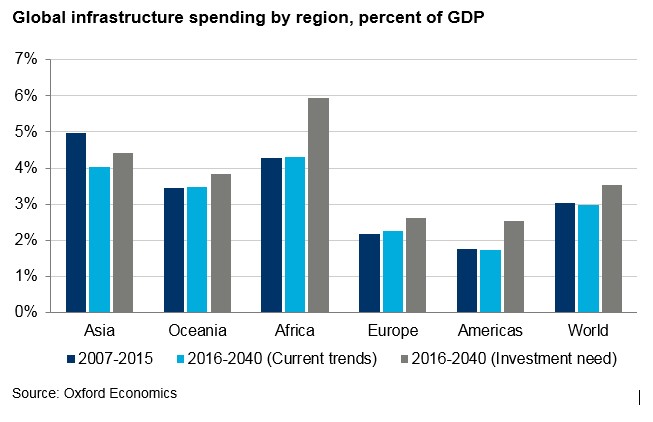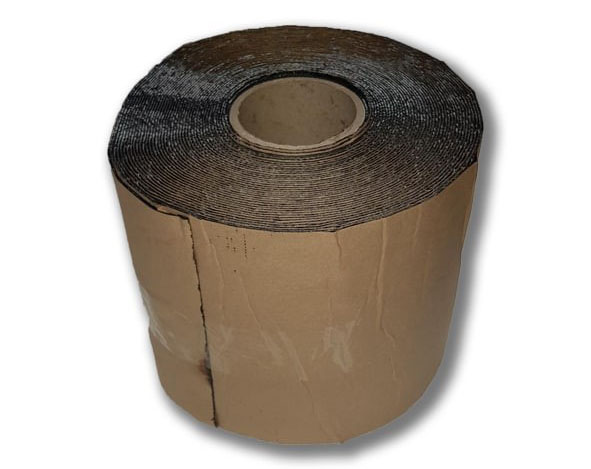* Traffic during tram and bus strike, North Sydney, 20 December 1951
If there were no new roads, the world of commerce would grind to a halt. But here is the paradox… if road construction stopped, with population growth as it is in Australia’s major population hubs, the roads would be so clogged, that many people would be forced to take public transport. This is the greener option.

But for Australia to thrive there needs to be a balance between new roads and highways and public transport works. Nevertheless, the process of building road and highways is complex; perhaps even more complex than building mass public transport projects. Road construction requires collaboration from several different qualifications of engineers with much of the work taking place outside or underground, or in the air. For a road to be completed, the coordination of many moving pieces needs to be seamless. Drainage systems and utilities must be specked in; bridges designed and implemented (more on Danterr’s bridge blogs); tunnels designed, bored, and fitted; electric and fibre optic work meticulously handled; traffic lights, cameras, road dividers, sound proofing… the list of tasks is a Long and Winding Road one might say! And, because road work mostly take place outside without any cover, dealing with the weather can become the biggest issue that throws off the construction schedule.

According to the various publications detailed with reporting infrastructure spending, just to make matters even more complicated, road infrastructure projects are consistently underfunded. We see evidence of that every day in Australia. According to the mean averages of a few economic websites, worldwide investment in infrastructure should be a minimum of 94 trillion USD by 2040. This seems like a huge number – it is 600 times the amount of Jeff Bezos and Elon Musk’s wealth combined. But according to most reports dated post 2020, it is $20 trillion short of what is required. For Australia’s part of this gap, the latest budget and future infrastructure literature indicates most of this gap comes from insufficient investment in the roads.

Remember the government own the roads. They employee who they choose to build the roads that then become part of the nation’s wealth. As anyone in the construction sector knows, government infrastructure contracts are almost always awarded to the lowest bidder. Think about that the next time you are driving over a high bridge… it is held together by the lowest bidder! Because of this, all construction projects are almost always competing on price. Lowering costs in every aspect of the job is the primary concern of all major construction firms.
So how does a company meet the demands of a government for the people, with limited funds and never-ending headaches regarding, price, labour, supply of goods, weather, budget blowouts, workcover claims, design changes etc etc? The answer? Innovative technology. And as far as Danterr is concerned… Bituthene tape is the future of road construction!

BITUTHENE® 5000
BITUTHENE® 5000 is a composite membrane incorporating high performance moisture and water-resistant rubberised asphalt with tough, puncture and heat-resistant polypropylene reinforcing mesh. Specially developed for use under a hot applied asphalt concrete wearing course.
BITUTHENE® 3000
BITUTHENE® 3000 is self-adhesive, rubberized asphalt / polyethylene waterproofing membrane used in basements and substructures including above grade plaza and parking decks and below grade basements, tunnels, and other subterranean applications.
Both grades of BITUTHENE® utilise the same rubberised asphalt adhesive, at the same adhesive thickness. The only difference is the surface finishing layer.
The NSW Road Authority has approved BITUTHENE 5000 for applications as a joint seal. BITUTHENE® 5000 is also designed for use under hot rolled asphalt and has a polypropylene mesh surface which is designed to be readily penetrated by hot asphalt aggregate.
Bituthene either the 5000 or the 3000 are required on all future Australian road projects, and Danterr is Australia’s leading supplier.
https://www.danterr.com/products/concrete-jointing-systems/tapes/bituthene-5000/
1800 262 383
Blog correspondence – zeb@danterr.com

